Table of Contents
In 2025, David Sinclair’s supplement stack includes:
-
NMN (Nicotinamide Mononucleotide) – 1g
-
Resveratrol – 1g
-
Metformin – 800–1,000mg
-
Spermidine – 1–2mg
-
Fisetin – 500mg
-
Taurine – 2g
-
Fish Oil (Omega-3s) – dose not specified
-
Alpha Lipoic Acid (ALA) – 300mg
-
Vitamin D3 – 4,000–5,000 IU
-
Vitamin K2 – 180–360 mcg
-
Trimethylglycine (TMG) – 500–1,000mg
-
Low-dose Aspirin – 83mg
-
Rapamycin – dose not publicly confirmed
Dr. David Sinclair is a Harvard geneticist and one of the world’s leading researchers in the science of aging.
He’s best known for his work on sirtuins, NAD+ metabolism, and longevity pathways—topics he explores in depth in his bestselling book Lifespan: Why We Age—and Why We Don’t Have To.
Sinclair doesn’t just study aging; he applies the latest research to his own daily routine. His supplement protocol reflects years of research, personal experimentation, and evolving science.
Below, we’ll explore why he takes each compound, how it fits into his broader strategy, and what the current science says.
NMN + RESVERATROL
Cellular NAD+ booster with ultra-pure NMN and Resveratrol, at research-backed doses.*
What Supplements Does David Sinclair Take in 2025?
In 2025, Harvard geneticist Dr. David Sinclair takes NMN (1g), resveratrol (1g), metformin (800–1,000mg), spermidine, fisetin, taurine, fish oil, vitamin D3, K2, TMG, low-dose aspirin, and rapamycin. He uses this stack to target aging pathways like NAD+ decline, inflammation, and mitochondrial dysfunction.
NMN (Nicotinamide Mononucleotide) – 1g per day
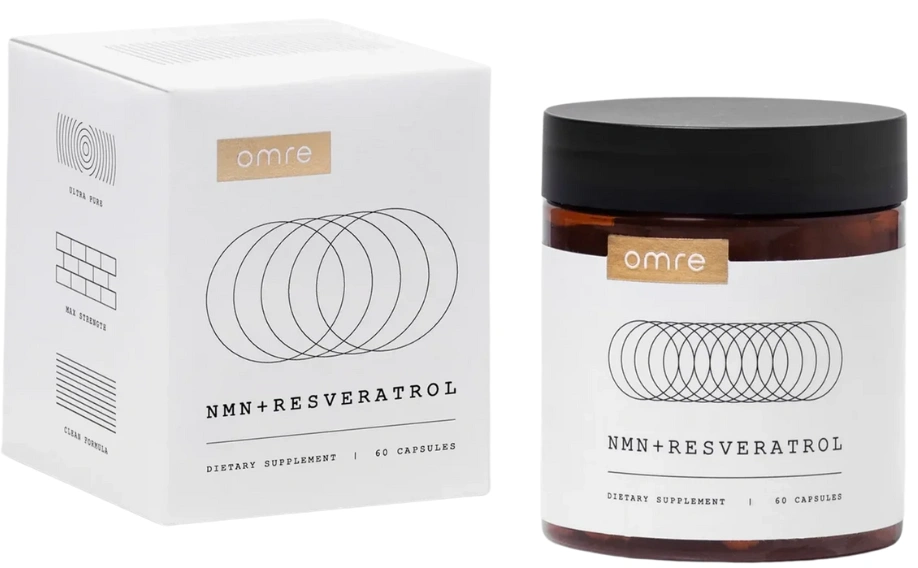 NMN is a molecule that helps the body produce NAD+, which is essential for energy and cell repair. Sinclair takes 1 gram of NMN each morning, often mixed with yogurt to aid absorption and support cellular health and energy metabolism by boosting NAD+ (nicotinamide adenine dinucleotide) levels.
NMN is a molecule that helps the body produce NAD+, which is essential for energy and cell repair. Sinclair takes 1 gram of NMN each morning, often mixed with yogurt to aid absorption and support cellular health and energy metabolism by boosting NAD+ (nicotinamide adenine dinucleotide) levels.
Something he’s mentioned repeatedly in podcasts and interviews as part of his NAD+ boosting protocol.
He believes it helps restore youthful energy at the cellular level, saying in an interview, "NAD+ is the closest we've gotten to a fountain of youth."
Scientific evidence suggests NMN can boost NAD+ (nicotinamide adenine dinucleotide), a key component in cellular energy production and DNA repair processes, which naturally decline with age (1).
A 2022 human trial showed NMN may improve muscle strength and insulin sensitivity in older adults. While long-term safety is still being studied, early results are promising (2).
Resveratrol – 1g per day
Resveratrol is a natural compound found in red grapes and berries. It's known for activating sirtuins, proteins that protect our DNA and may slow aging.
Sinclair takes 1 gram of resveratrol every morning with yogurt or olive oil to improve absorption.
He was one of the early researchers to highlight resveratrol's potential. Although human studies are limited, animal studies suggest it may reduce inflammation and improve heart health (3).
Some experts recommend pterostilbene as an alternative due to better absorption, but Sinclair still sticks with resveratrol.
Metformin – 800–1,000mg per day
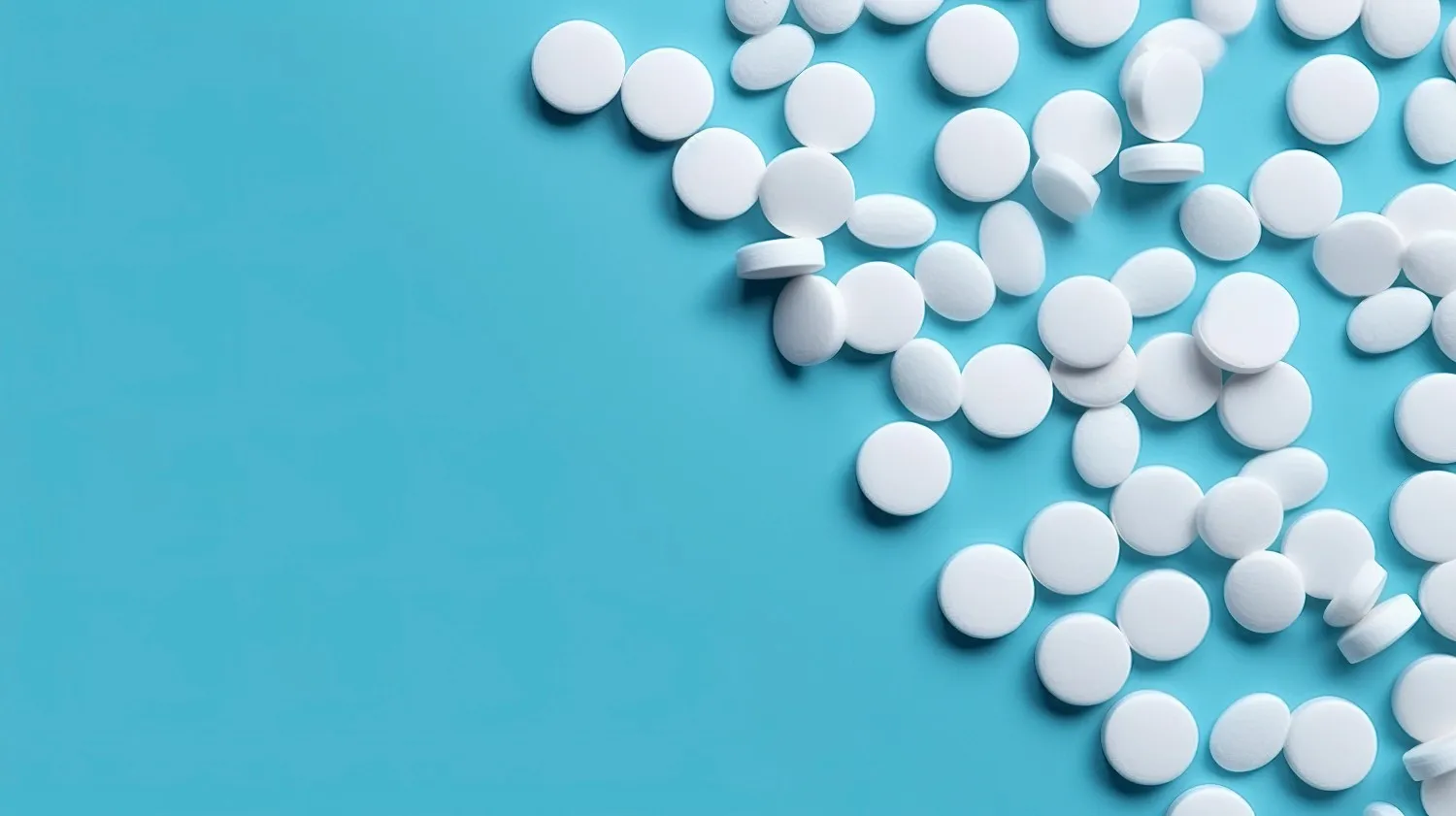 Metformin is a common diabetes drug that Sinclair uses for its potential anti-aging effects.
Metformin is a common diabetes drug that Sinclair uses for its potential anti-aging effects.
He takes it at night but skips it on workout days, citing concerns it might interfere with exercise benefits and mitochondrial health. In his words: "I take metformin not because I have diabetes, but because of its potential to mimic fasting."
Studies have linked metformin to improved insulin sensitivity and even longer lifespans in diabetic patients (4).
However, it can cause digestive issues and may lower vitamin B12 over time, so it should only be taken under medical guidance.
Spermidine – 1–2mg per day
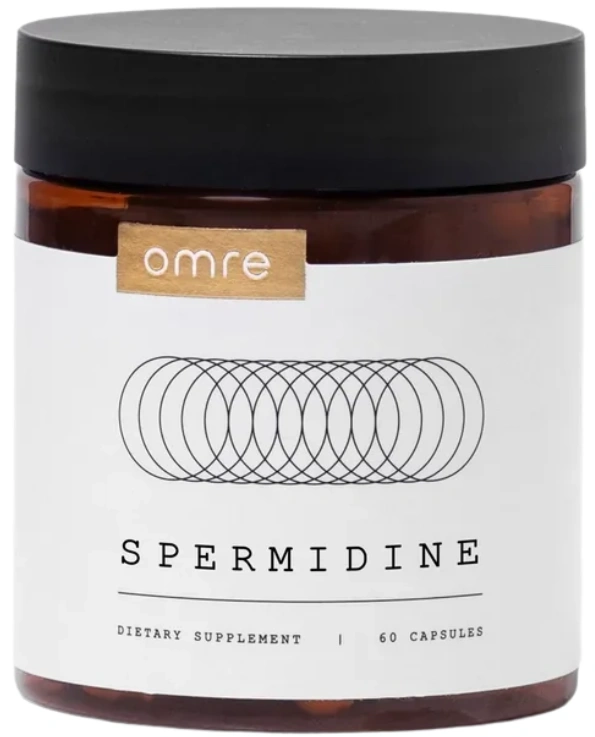 Spermidine is a food supplement found in wheat germ and cheese, valued for its role in cellular renewal and promoting autophagy—a biological process key to maintaining healthy cells and combating age-related diseases.
Spermidine is a food supplement found in wheat germ and cheese, valued for its role in cellular renewal and promoting autophagy—a biological process key to maintaining healthy cells and combating age-related diseases.
Sinclair takes it in the morning alongside his other core supplements.
Animal studies show spermidine may support heart health and brain function as we age (5). Though human research is still early,
Sinclair says, "Spermidine helps mimic the effects of fasting, which is key to healthy aging."
Fisetin – 500mg per day
Fisetin is a plant-based compound with senolytic properties found in strawberries and apples, studied for its potential longevity benefits and effects on brain inflammation and cognitive dysfunction.
It’s considered a senolytic, meaning it may help remove damaged "zombie cells" that build up with age. Sinclair takes 500mg of fisetin in the morning with yogurt.
Research in mice shows fisetin can extend lifespan and reduce age-related inflammation. It's also been studied for protecting the brain and kidneys (6).
While more human studies are needed, it appears to be safe and promising.
Quercetin – 500mg per day (possibly cycled)
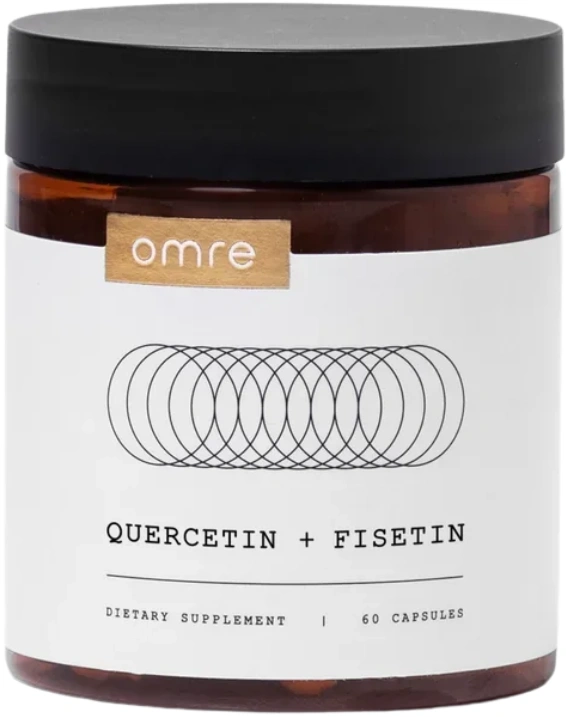 Quercetin is another senolytic found in onions, apples, and capers. Sinclair used to take it regularly but may now cycle it or take it occasionally. Recent insights suggest that high doses might interfere with certain cellular pathways like SIRT6.
Quercetin is another senolytic found in onions, apples, and capers. Sinclair used to take it regularly but may now cycle it or take it occasionally. Recent insights suggest that high doses might interfere with certain cellular pathways like SIRT6.
Still, quercetin has been shown to fight inflammation and oxidative stress (7).
It often works best when paired with fisetin, though some longevity experts recommend using it in moderation or relying on diet alone.
Taurine – 2g per day
Taurine is an amino acid that supports heart health, reduces oxidative stress, and may help maintain mitochondrial function (8). Sinclair started taking 2 grams daily after studies showed it extended lifespan in mice by up to 12%.
He admits the science is still evolving, saying, "Taurine is interesting because it seems to promote longevity despite activating mTOR, which usually speeds up aging."
He takes it in the morning, monitoring how it affects his biomarkers.
Fish Oil (Omega-3s) – Dose not specified
 Omega-3 fish oil is rich in EPA and DHA—fatty acids known to support cardiovascular health, cognitive function, and reduce chronic low-grade inflammation linked to age-related decline.
Omega-3 fish oil is rich in EPA and DHA—fatty acids known to support cardiovascular health, cognitive function, and reduce chronic low-grade inflammation linked to age-related decline.
Sinclair recently added it to his stack, likely for its anti-inflammatory and cognitive benefits.
He hasn’t publicly shared his exact dose, but longevity experts like Dr. Andrew Huberman and Dr. Peter Attia have publicly stated they take around 2g of EPA and 1.5g of DHA daily—highlighting the role of omega-3s in brain and heart health.
Fish oil may also help reduce blood triglycerides and protect against age-related decline (9).
Alpha Lipoic Acid (ALA) – 300mg per day
ALA is a powerful antioxidant that supports mitochondria and energy production. Sinclair has reintroduced it into his routine, inspired by Dr. Denham Harman, who promoted it for longevity.
He takes 300mg, likely on an empty stomach for better absorption. Some studies question its long-term benefits, but Sinclair appears to see value in it as part of a broader strategy.
Vitamin D3 – 4,000–5,000 IU per day
Vitamin D plays a key role in immune response, mood regulation, and maintaining bone strength, and deficiency in humans has been linked to autoimmune diseases and increased risk of heart disease.
Sinclair takes 4,000 to 5,000 IU per day—a dose higher than standard recommendations but common among longevity enthusiasts.
A 2017 meta-analysis found that vitamin D3 supplements may reduce mortality risk in older adults (10).
Sinclair pairs vitamin D3 with vitamin K2 (180–360 mcg daily) to optimize calcium metabolism and prevent calcium buildup in arteries, reducing cardiovascular risk while supporting bone density.
Vitamin K2 – 180–360 mcg per day
K2 helps direct calcium to bones instead of arteries, reducing the risk of hardening of the arteries. Sinclair takes it daily with vitamin D3.
Studies link K2 to improved heart and bone health, especially in aging populations (11). It’s a key partner to D3, and the two are often taken together to improve outcomes.
Trimethylglycine (TMG) – 500–1,000mg per day
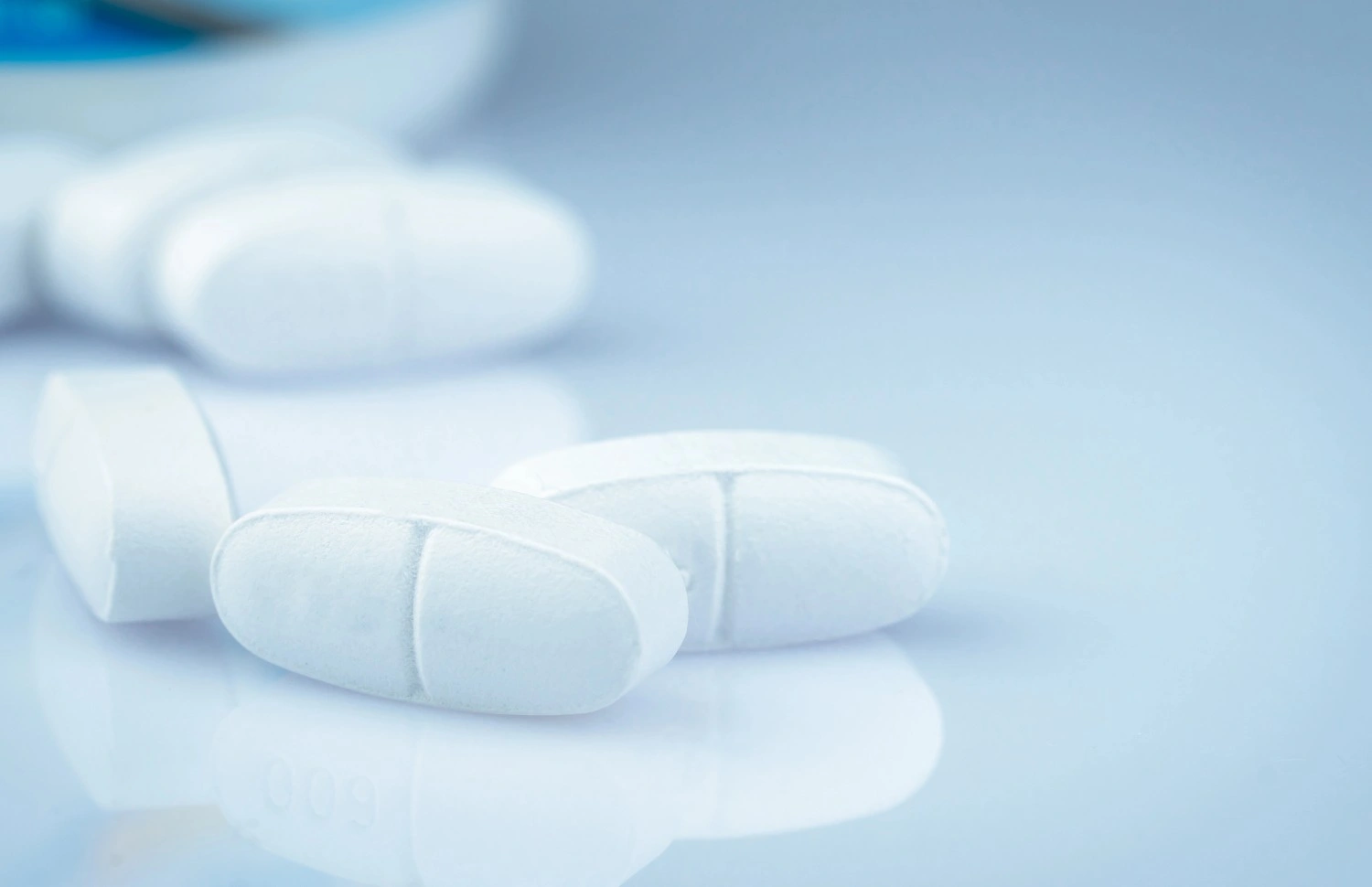 TMG, or betaine, supports DNA methylation and protects the body’s methyl groups, which can be depleted when taking NAD+ boosters like NMN. Sinclair takes 500 to 1,000mg daily alongside NMN.
TMG, or betaine, supports DNA methylation and protects the body’s methyl groups, which can be depleted when taking NAD+ boosters like NMN. Sinclair takes 500 to 1,000mg daily alongside NMN.
He explains, "NMN can use up methyl groups, so I take TMG to avoid potential imbalances."
TMG (Trimethylglycine), taken at 500–1,000 mg daily, may also support DNA methylation, liver health, and help regulate homocysteine levels, which are linked to cardiovascular diseases.
Aspirin – 83mg per day
Sinclair takes a low-dose aspirin daily for its potential to reduce cancer risk and inflammation.
While older studies supported aspirin’s role in reducing heart attack risk and inflammation, recent clinical studies highlight mixed results, especially for healthy non-diabetics and those already using blood thinners.
Aspirin can increase the risk of bleeding, so it should only be considered with a doctor’s advice. Sinclair has said he continues to take it, but this is one of the more debated parts of his protocol.
Rapamycin – Dose unknown (likely weekly)
Rapamycin is a prescription drug that targets mTOR—a key cellular growth pathway.
Both Sinclair and Dr. Peter Attia have discussed its potential in slowing aging, with Attia noting he takes 6mg weekly, though Sinclair hasn’t publicly confirmed his exact dose.
It has extended lifespan in multiple animal studies (12). Sinclair is believed to take it weekly, possibly 6mg, though he hasn’t confirmed the dose.
It’s one of the most promising longevity drugs but may have side effects, especially with long-term use. Sinclair likely takes it under close medical supervision, and experts caution it’s not for everyone.
What’s New in Sinclair’s Routine for 2025?
In 2025, Sinclair made a few notable updates to his supplement stack, reflecting recent studies and his ongoing experimentation with longevity science:
- Taurine (2g/day) – Added for its potential to extend lifespan, improve mitochondrial function, and support cardiovascular health.
- Fish Oil (Omega-3s) – Included for anti-inflammatory effects and brain support, a common recommendation in longevity circles.
- Alpha Lipoic Acid (300mg/day) – Reintroduced after previous removal, likely due to its antioxidant and mitochondrial benefits.
- Rapamycin (weekly, dose unknown) – One of the biggest additions, this prescription drug targets mTOR and shows strong longevity effects in animals.
Supplements David Sinclair May Have Stopped Taking
Sinclair occasionally removes or cycles supplements from his routine as research evolves or side effects become clearer. Here are a few he may no longer take regularly:
- Quercetin – Possibly cycled or phased out due to potential downsides like interfering with SIRT6 and NRF-2, both important for DNA repair and antioxidant response.
- CoQ10 – Once part of his routine, but not mentioned in recent interviews. It’s debated whether CoQ10 extends lifespan, and Sinclair may no longer see it as essential.
- Alpha Lipoic Acid (previously removed) – Though now reintroduced, it had been taken out earlier due to mixed evidence around its long-term impact on health.
NMN + RESVERATROL
Cellular NAD+ booster with ultra-pure NMN and Resveratrol, at research-backed doses.*
How These Supplements Target Aging
Sinclair’s supplement routine isn’t just random. Each one targets one or more of the biological mechanisms scientists call the "Hallmarks of Aging."
NAD+ decline: NMN, resveratrol
Mitochondrial dysfunction: Taurine, ALA, TMG
Senescent cells: Fisetin, quercetin (if used)
Genomic instability: Resveratrol, metformin, vitamin D3
Inflammation: Fish oil, aspirin, resveratrol
Autophagy and cellular cleanup: Spermidine, rapamycin
Epigenetic alterations: TMG, NMN
By supporting these different areas, Sinclair’s stack aims to slow down age-related decline at the cellular level—not just treat symptoms, but help maintain the body’s repair and resilience over time.
David Sinclair’s Longevity Lifestyle Beyond Supplements
-v1744224195233.webp) While supplements play a key role in Sinclair’s routine, he emphasizes that they’re just one part of a bigger picture. His daily lifestyle habits are designed to work alongside his supplement stack to support long-term health and aging.
While supplements play a key role in Sinclair’s routine, he emphasizes that they’re just one part of a bigger picture. His daily lifestyle habits are designed to work alongside his supplement stack to support long-term health and aging.
Intermittent fasting: He often skips breakfast or lunch to mimic the benefits of calorie restriction.
Mostly plant-based diet: He avoids sugar, processed foods, and red meat, focusing on vegetables, healthy fats, and occasional fish.
Regular exercise: His weekly routine includes both strength training and cardio, often with high-intensity intervals.
Sauna and cold exposure: He uses heat and cold therapy to activate cellular stress responses that may promote longevity.
Tracking biomarkers: Sinclair monitors his glucose, lipids, and other health markers with frequent lab tests and a continuous glucose monitor.
- Sleep optimization: He prioritizes restful sleep to support hormone balance, memory, and recovery.
Is It Safe to Try David Sinclair’s Stack?
David Sinclair’s supplement stack isn’t one-size-fits-all, and it may not be safe or necessary for everyone. Many of the compounds he takes—like metformin, aspirin, and rapamycin—are prescription drugs or have potential side effects.
Always consult with your doctor before starting any new supplement or medication.
While supplements like NMN, resveratrol, and fisetin are available over-the-counter, their long-term effects are still being studied.
What works for Sinclair may not be right for your individual health, especially if you're managing a medical condition or taking other medications. It’s important to evaluate your own goals and baseline health first.
That said, Sinclair’s stack has inspired many to take a proactive approach to aging.
If you’re ready to explore longevity supplements, Omre’s premium collection includes NMN + Resveratrol, Quercetin + Fisetin, and Spermidine—perfect for those looking to support healthy aging and cellular repair.
Conclusion
David Sinclair’s supplement routine reflects the cutting edge of aging research, combining NAD+ boosters, senolytics, and metabolic regulators with thoughtful lifestyle habits.
His 2025 stack includes newer additions like taurine, fish oil, and rapamycin—alongside staples like NMN and resveratrol—all aimed at slowing down age-related decline.
While not every part of his routine may be right for you, Sinclair’s approach offers a valuable blueprint for those interested in living longer, healthier lives.
As always, talk to your healthcare provider before making major changes to your supplement or medication plan.
Interested in starting your own journey toward healthy aging? Omre offers premium longevity formulas based on the same science Sinclair follows.
Check availability to find the right fit for your routine.
FAQs
What supplements does David Sinclair take daily?
David Sinclair’s 2025 routine includes NMN, resveratrol, metformin, spermidine, fisetin, taurine, fish oil, alpha lipoic acid, vitamin D3, vitamin K2, TMG, low-dose aspirin, and rapamycin. He adjusts his stack based on new research and often takes most of his supplements in the morning with yogurt or olive oil.
Does David Sinclair still take NMN?
Yes, Sinclair continues to take 1 gram of NMN daily. He believes it helps restore NAD+ levels, which support cellular energy and repair. He usually takes it in the morning mixed with yogurt to aid absorption.
Is rapamycin part of David Sinclair’s stack?
Rapamycin appears to be one of Sinclair’s latest additions. While he hasn’t confirmed the dose, it’s believed he takes it weekly, like other longevity researchers such as Dr. Peter Attia. It targets mTOR, a key aging pathway.
Why did Sinclair stop taking quercetin?
Sinclair hasn’t officially confirmed dropping quercetin, but some experts suggest he may have phased it out due to concerns it might interfere with longevity-related proteins like SIRT6. He still takes fisetin, which offers similar senolytic benefits.
Are Sinclair’s supplements safe to try?
Some are available over-the-counter (like NMN and resveratrol), while others—like metformin, aspirin, and rapamycin—are prescription drugs with potential side effects. Always talk to a healthcare provider before starting any supplement routine.





